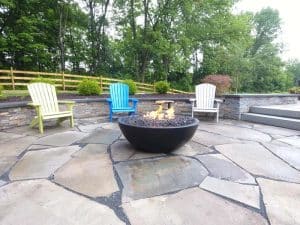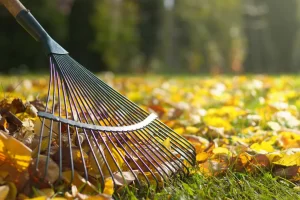Make your garbage work for you! Get bigger more nutritious vegetables, fruits, plants and herbs with composting.
Typically are 2 types of composting: cold and hot.
Cold composting is simply collecting yard waste and/or taking organic materials such as fruit and vegetable peels, coffee grounds, filters, eggshells, etc. then corralling them in a pile or bin. Within the year or so, the material will decompose.
Hot composting is a faster process and considered to be geared toward the more serious gardener. You’ll get compost in 1-3 months during the warm weather. You need 4 ingredients for the fast-cooking hot compost process: nitrogen, carbon, air, and water. Together, these items feed microorganisms which will speed up the decaying process for compost.
You can also use the worm composting process (vermicompost) for your hot compost. The worms eat your food scraps, release castings that are rich in nitrogen. Any old worms won’t do, you need red worms or “red wigglers”. They can be purchased inexpensively at your local garden supply store or online.
Who can compost?
- Almost anyone can! Regardless of whether you are in a house, condo or an apartment!
Why compost?
- Enrich your garden soil with valuable nutrients naturally so that your plants and vegetables can grow larger without fertilizer. Improves your green thumb!
- Composting is a natural way to recycle by reducing the trash that’s going to landfills providing a huge positive impact on the environment.
- Composting is easy, requires very little work and resources.
What can be composted?
- You can compost almost anything that has lived or grown recently
- All vegetable and fruit wastes, including, rinds and cores even if moldy
- Fruit or vegetable pulp from juicing
- Corn cobs and husks (cobs breakdown very slowly)
- Stale, old or fresh bread, donuts, cookies, crackers, pizza crust, noodles: anything made out of flour
- Grains: cooked or uncooked such as rice, barley, lentils, etc.
- Coffee grounds, tea bags, filters
- Old Spices
- Outdated boxed foods from the pantry
- Egg shells (crush well)
- Shredded newspaper and other paper (not receipts)
- Napkins (that aren’t colored or bleach)
- Dry leaves and plant clippings
- Straw
- Sawdust from untreated wood
What Cannot Be Composted
- Meat or meat waste, such as bones, fat, gristle, skin, etc.
- Fish or as fish waste, such bones and skin
- Pet food
- Pet fecal matter (sounds funny but some people think that they can compost their dogs’ or cats’ poop), but you shouldn’t, especially if there is any possibility it will come in contact with future food sources such as planted vegetables, fruits and herbs!
- And the same applies to human wastes, as they can carry pathogens, diseases and organisms that can be extremely harmful.
- Dairy products, such as cheese, butter, cottage cheese, yogurt, cream cheese, sour cream, etc.
- Diseased plants
- Sawdust or chips from pressure-treated wood
- Grease and oils of any kind
Kitchen Compost Pail or Scrap Bucket
- You can store the food scraps for the outdoor compost heap or container until you are ready to add it by adding a kitchen compost pail/container or larger 4-5 gallon bucket with a lid that can be closed securely. Keep it in a handy place under the sink, on the counter, or by the back door.
- Empty kitchen daily or every few days, depending upon how much waste you generate. This will help ensure that no smell starts permeating within the kitchen or home.
- Adding a layer of newspaper or wet paper towel covering the scraps inside a container will help to cut down on odor or gnats.
- Wash your pail or bucket well after each time you dump it to use again. food scrap empty pail
How to Hot Compost
- Gather together enough materials to make a pile at least 3 feet deep.
- You will need to have wet, green and dry brown items.
- Start building your organic compost pile, alternating brown and green items.
- If your compost pile looks too wet and smells, add more brown items.
- If it seems extremely brown and dry, add green items and water to make it slightly moist. Need a good balance of dry and wet items.
- Periodically sprinkle water over the pile to achieve the consistency of a damp sponge. Be careful not to add too much water, otherwise, the microorganisms in your pile will become waterlogged and drown, then rot instead of compost.
- Monitor the temperature of the compost pile with either a thermometer or, you can simply reach into the middle of a pile with your hand. Your compost pile should feel warm. This is to be sure the materials are properly decomposing.
- At this point, the layers have served their purpose of creating equal amounts of green and brown materials throughout the pile, so stir thoroughly.
- Once the compost no longer gives off heat, becomes dry, brown, and crumbly, it’s fully cooked and ready to add to your garden.
- Add about 4 to 6 inches of compost to your flower beds and into your pots at the beginning of each planting season.
- Let that beautiful black gold go to work for you!
Mountain Road Landscaping turns dreams into reality! For great landscape and hardscape designs view our gallery page and call us today.





